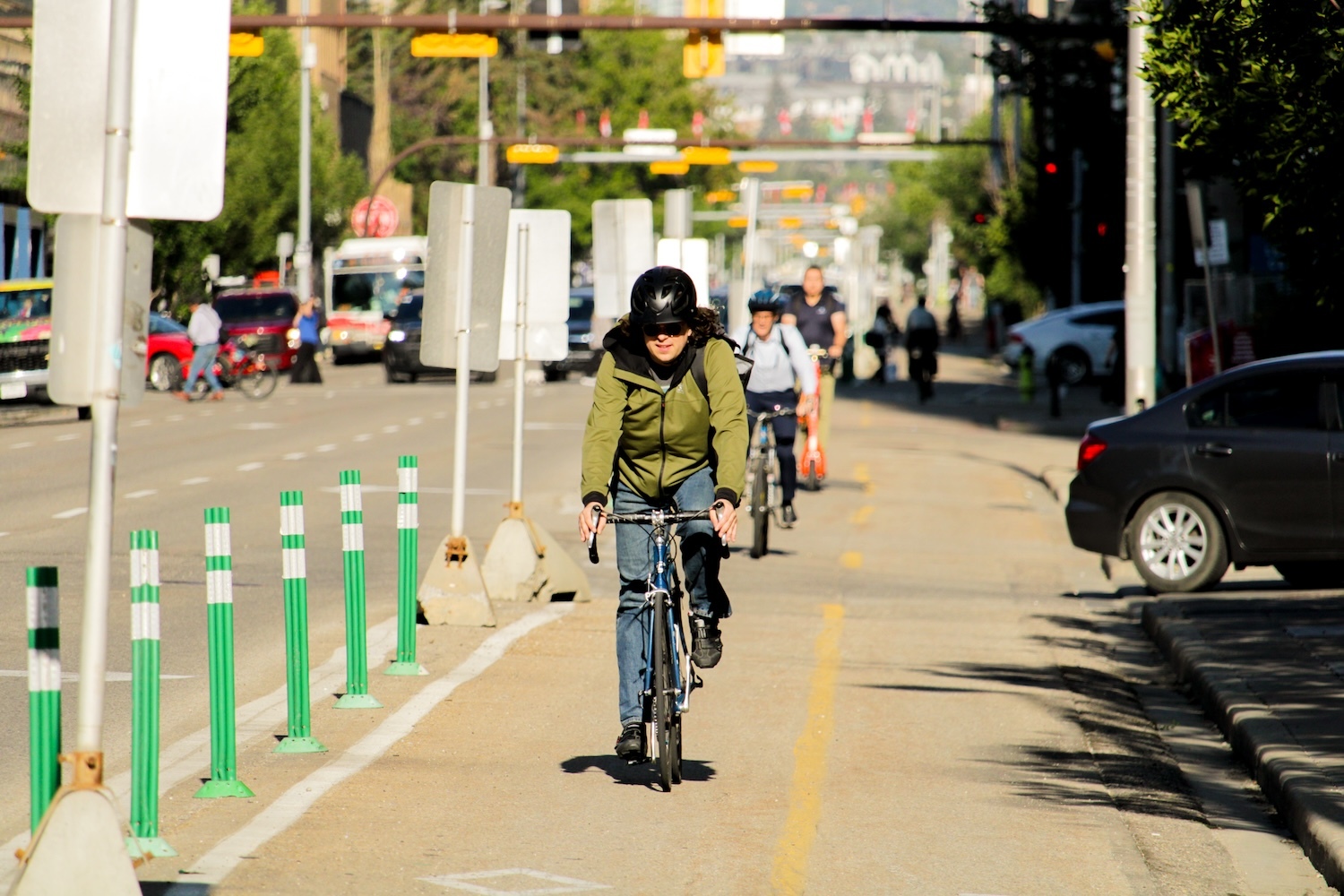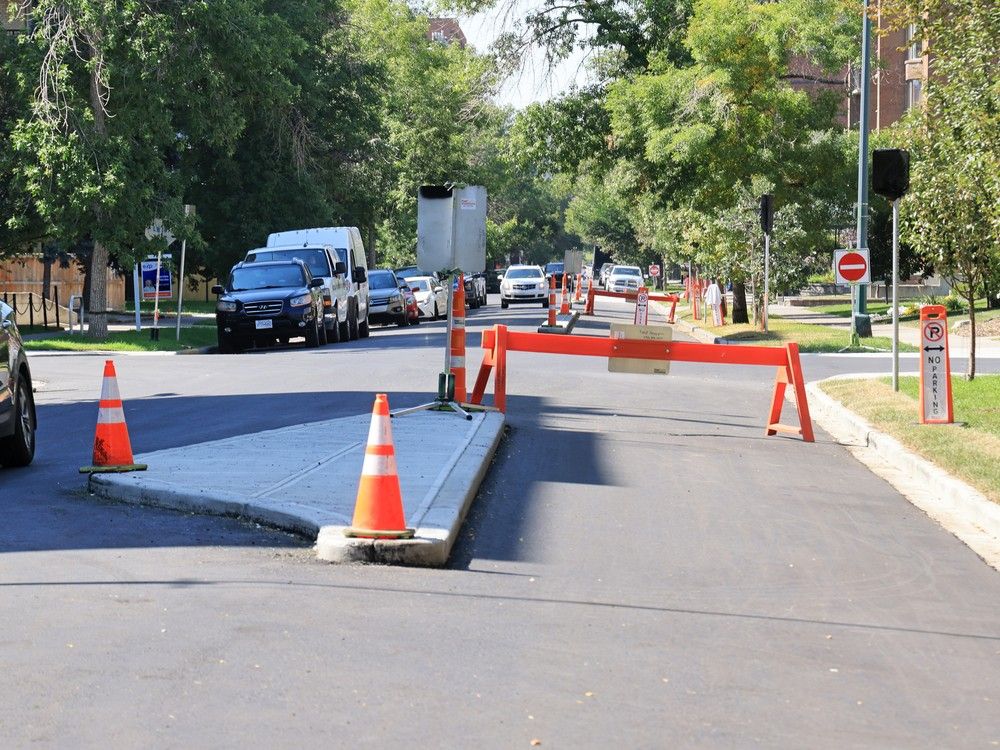"In 2011, Calgary city hall rolled out a cycling strategy “to become one of the premier cycling cities in North America.” That strategy set a goal of building 30 kilometres of protected cycle tracks, “physically separated from traffic and pedestrians,” by 2020.
Five years after that target date, city hall has yet to meet that goal. Today, Calgary has 26.2 kilometres of cycle tracks.
The same strategy called for 180 kilometres of painted bike lanes by 2020. Today Calgary has a quarter of that, with 45.6 kilometres of painted lanes, according to city hall. To put those numbers in context, Calgary has nearly 7,700 kilometres of roads."
No one is leading the cycling file at city hall.

www.sprawlcalgary.com






